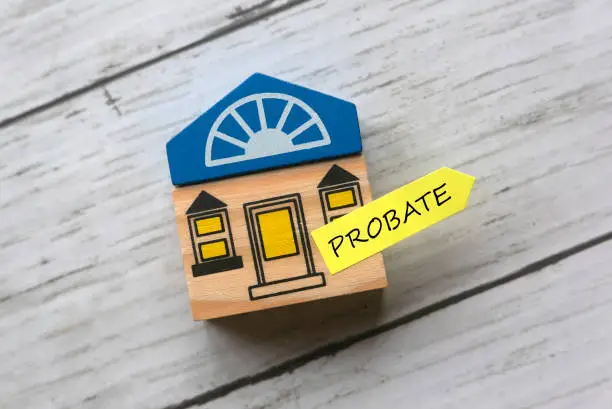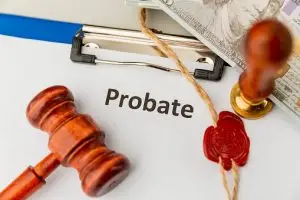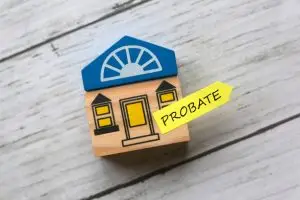What is a Probate Sale

What is a Probate Sale: What You Need to Know
Probate is when a person’s estate is distributed after they die. In most cases, the person who dies must have a will in order for their estate to be formally and legally distributed. If you don’t have a will, your estate will be administered under the rules of intestacy. This means that all of your property will go to your closest relatives automatically. However, if you do have a will in place, probate law says that any property you own should be sold in order to pay estate taxes and other debts associated with your final payment. This guide outlines everything you need to know about probate sales — from what they are and how they work, to whom they affect, who can sell assets during probate and why it’s important to get a lawyer if you plan on having one represent you during your probate sale.

What is a Probate Sale
What is a Probate Sale?
Simply put, a probate sale is when a trust or other fiduciary sells assets during the course of probate administration. This is the period of time between when a person dies and when their heirs receive their entire inheritance. During this period, the person who wants to sell assets during probate — the fiduciary — must petition the court. They must be approved by the court and give notice to the people and businesses that the assets belong to. Once the notice is given and the fiduciary is approved by the court, they can sell the assets.
Why Does Someone Have to Sell Assets during Probate?
The person who dies often has significant debt that must be paid out of their estate. The person who owns the assets during probate may want to pay off a particular bill to keep the IRS from taking their entire payment. Or, the person who dies may have substantial business debts, like a significant amount of unpaid taxes owed the government or a large, unpaid debt. In order to pay off these debts, the person who wants to sell assets during probate may need to sell assets to pay off creditors. This is also a common method of probate funding. If the person who dies owns a business, for instance, and has substantial debts to the business and its suppliers, they may need to sell the business’ assets in order to pay the debt.

What is a Probate Sale
Who Can Sell Assets During Probate?
A probate sale can only be made by a fiduciary; like the executor of a will or the trustee of a trust. A fiduciary is a person appointed to manage another person’s assets. Depending on the situation, a probate fiduciary might be the executor of a will, the trustee of a trust, a personal representative (like a power of attorney or a representative payee), a successor trustee, a judge or a surrogate. A fiduciary can sell assets for the benefit of the person’s estate. This includes selling assets in order to pay off creditors and making final distributions to the person’s beneficiaries. A fiduciary can also sell assets in order to settle the estate’s debts.
How Does a Probate Sale Work?
If a fiduciary wants to sell assets during probate, they must file a petition with the court. They also must give notice to the people and businesses whose assets they want to sell. The fiduciary must file the petition with the court, explain the situation and request that the court allow the sale. The court will decide whether the sale takes place and if it is allowed. In many cases, the fiduciary files a petition with the court and then waits for an order allowing them to sell assets. This time, they are requesting permission to sell the assets. Then, the court expects the fiduciary to sell the assets. The court may give the fiduciary a time period within which to complete the sale, like 24 hours or one day. Then the court will assume that the fiduciary sold the assets.
The Benefits of Probate Sales
There are a number of reasons why someone selling assets during probate is a good idea. First, selling assets during probate can help you pay off your debts. That’s because you may be able to sell assets that are worth less than the amount you owe on them. This may result in a smaller payment to your creditors. One of the biggest benefits of selling assets during probate is that it allows you to pay off your debts quickly. As long as you have enough assets in your estate to cover them and you file the appropriate paperwork with the court, you can sell assets during probate much more quickly than if you were waiting for the final settlement of your estate.
The Disadvantages of Probate Sales
There are, of course, disadvantages to selling assets during probate. The biggest one is that it can take a significant amount of time. If a person doesn’t have a will, their property will automatically go to their closest relatives. This can take years to complete and involve a lot of legal paperwork. Another disadvantage is that it costs money in the form of attorney’s fees and court fees. If you are selling assets during probate; you must pay the court and an attorney to file the necessary paperwork and to appear at the sale.
Conclusion
Probate is the process that occurs when someone dies without a will. During probate, your fiduciary — the person who is in charge of your estate during this time — can sell assets to pay off your creditors. The biggest advantage of a probate sale is that it allows you to pay off your debts quickly. The biggest disadvantage of a probate sale is that it can take a significant amount of time, be expensive and include a lot of paperwork.
